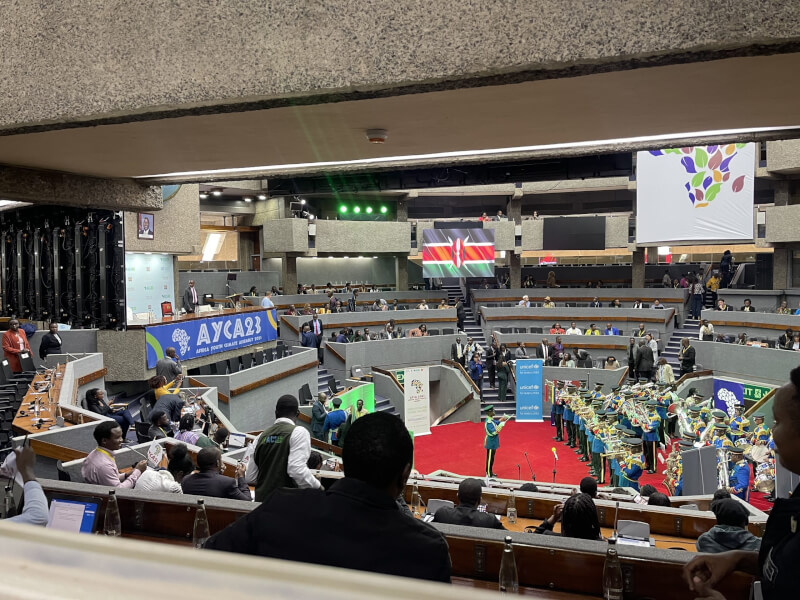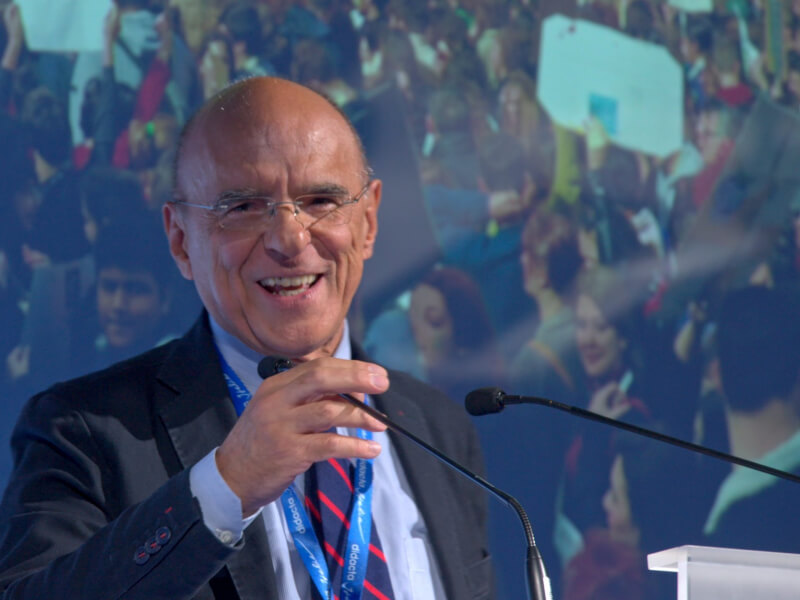28 September 2023 – The African Climate Week (ACW) (4 – 8 September 2023) and its preceding African Climate Youth Assembly (AYCA) marked a significant gathering in the realm of African climate discussions. They were among the biggest and most anticipated high level climate gatherings in Africa since the onset of the COVID-19 pandemic. With the ambition to discuss “African-led solutions to global challenges,” culminating in an African Youth Climate Declaration, the AYCA served as a dynamic platform for young people to flex their passion and knowledge towards influencing the ACW agenda for “green growth and climate finance for Africa and the world.
Although there were victories, such as convening over 500 in-person participants, and over 2,000 overall through consultations and virtual participation in the summit, there is still ample opportunity for learning as we strive to drive meaningful transformation from within the African continent.
Leading from an African sense
Within the framework of the African Union (AU) Agenda 2063, we recognise our collective ambitions for a united and prosperous Africa, one characterised by transformed, resilient and sustainable communities, with a strong educational foundation. Similarly, The African Union Development Agency – New Partnership for Africa’s Development (AUDA-NEPAD) agenda unites Africans in pursuit of sustainable economic development and integration, with a specific focus on equipping youth with skills and employment opportunities as a pathway to a bright future.
However, in practice, it seems we continue to foster an environment counterintuitive to the ambition of unity and prosperity. Persistent power dynamics and disparities in class within these forums continue to plague these solutions. Unequal treatment of locals and fellows in the implementation of the initiatives, has directly undermined the collaborative leadership envisioned. How can we expect the world to respond to our leaders if we are the first to discriminate against them?
Leading with an African perspective entails embracing values and actions that recognise our intrinsic worth. This involves viewing young people as critical partners to steward towards co-creating a society characterised by social equity in harmonious collaboration with its biosphere.
Shifting from climate change to systems change
African youth’s top priority should be embracing complexity and systemic thinking. The multifaceted challenges and dynamics experienced by young change-makers require a transition from a narrow focus on climate and carbon-related matters to a broader pursuit of systemic transformation.
Africa is the world’s lowest carbon emitter at only 3.8% of global emissions, so it is essential to recognise that while green innovation remains significant, it should not monopolise our priorities. Sustainability in an African context revolves around protecting our sovereignty as we strive towards meeting our basic needs. It involves a keen awareness of the compromises we make under the guidance of those who sell their solutions as the ultimate key to our success. This means thoroughly scrutinising and critically evaluating the individuals and entities we platform in our forums. For instance, granting a non-African mining company a significant 2-hour platform during a youth conference warrants thorough consideration.
Recognising the influence of limiting beliefs
Limiting beliefs in a society are collectively held negative or constraining ideas that restrict the progress and potential of certain groups or individuals within that community. They manifest themselves in various ways. For one, the call for a global fund for youth led solutions in the African Youth Climate Declaration is a deep indictment of African Leaders. The pronounced scarcity of local investments to reinforce resilience, foster adaptation and transform African socio-economic systems has led to a dynamic where global financing emerges as the primary recommendation from African youth.
Public debt in Africa has increased by 138% since 2010, with 47% of that being multilateral loans (in southern and eastern Africa). Low-income countries are compelled to take loans required for recovering from climate-related challenges, thereby becoming burdened with debt. The debt burden escalates as climate-related challenges continue to increase in severity and frequency in middle to low-income countries. Consequently, the mounting debt results in even fewer resources for addressing climate disasters, enhancing resilience against future crises, and allocating funds to other essential social issues.
Many African leaders have expressed that climate change is a core risk to the continent’s development and prosperity. However, by continually relying on external financing, we inadvertently perpetuate ourselves in the same colonial dynamics that we spent through the 20th century liberating from. An alternative path presents itself, one that bypasses this neo-colonial dynamic by harnessing our creativity to devise homegrown, locally driven, locally-led solutions for financing our development while fostering global equity within a thriving, healthy biosphere.
Embracing ubuntu for transformation
In principle, climate change is but a symptom of self-reinforcing socio-economic ills that perpetuate resource extraction and consolidation for the benefit of a select few. It is crucial to recognise that we have survived the worst of such exploitation and abuse in the past. The positive dynamic towards this type of transformation lies within the African cultural DNA. Ubuntu, an ethos rooted in interconnectedness and interdependence, provides us with the lens through which we can create fundamental change.
As we look ahead to the next African Climate Week and African Climate Youth Assembly, let us commit to avoiding the pitfalls that take us two steps back. Instead, let us propel ourselves towards collectively working towards the Africa we envision, the Africa we want, and the Africa we deserve. Let us all embrace ubuntu and let us drive this transformation together.






